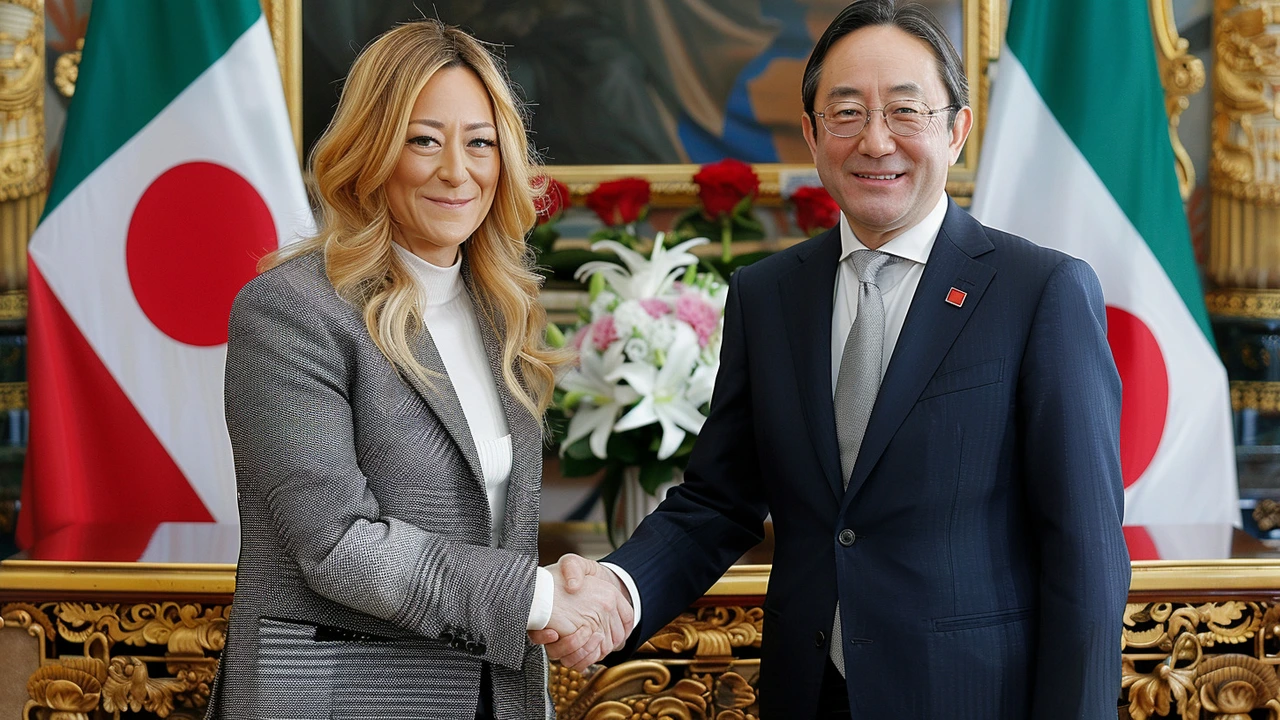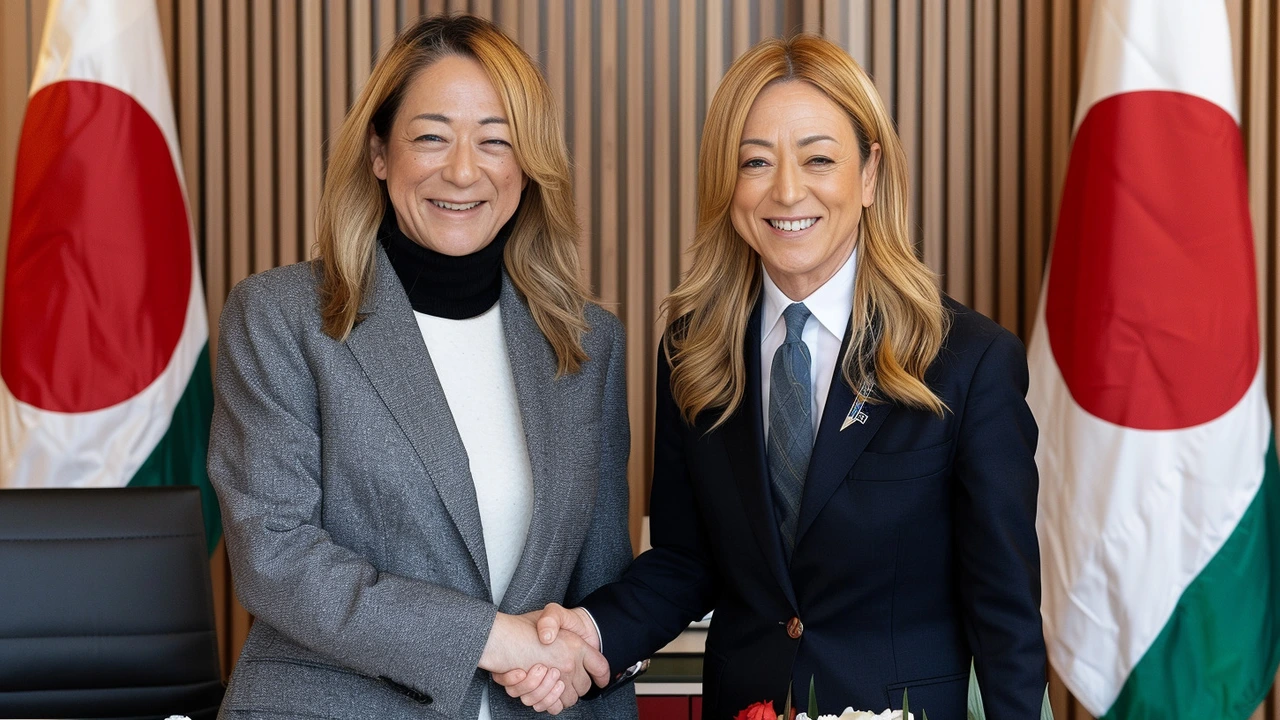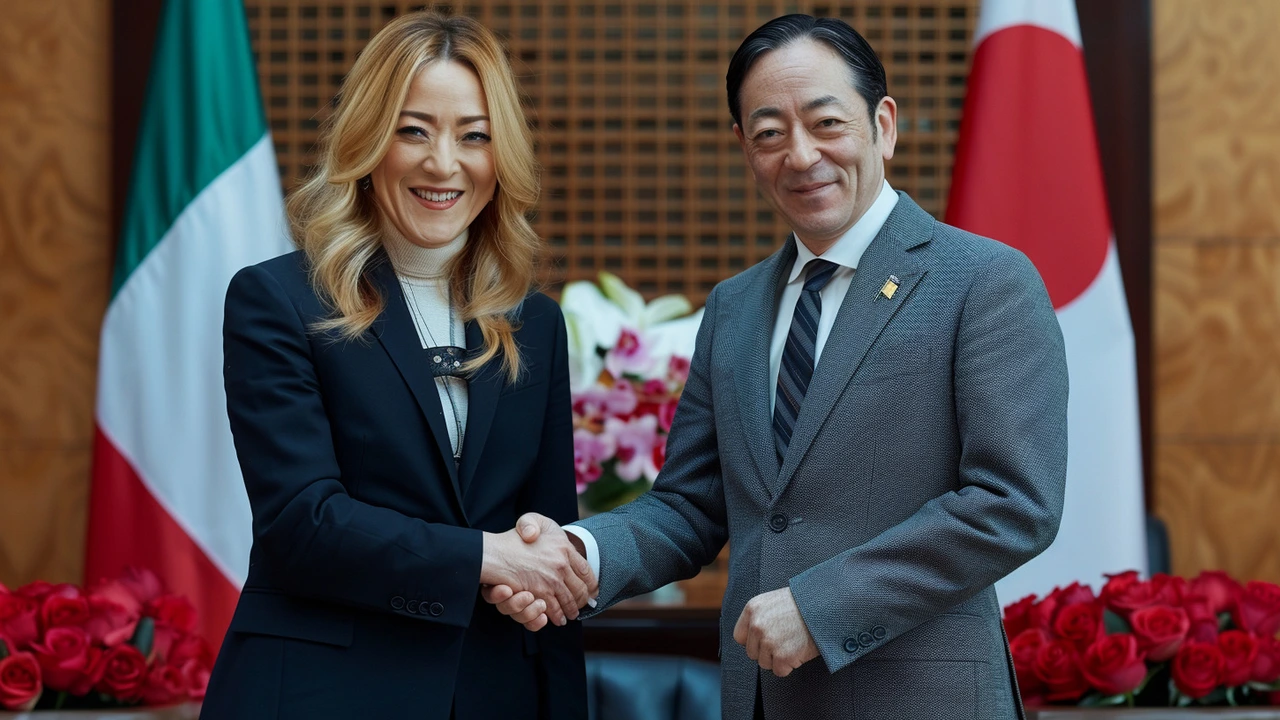Japan and Italy Collaborate on Comprehensive Diplomatic and Defense Plan
The governments of Japan and Italy are finalizing an ambitious action plan to strengthen ties across numerous sectors, encompassing diplomacy, defense, and economic security. This initiative, which will span from 2024 to 2027, marks a strategic effort by both nations to bolster their cooperative frameworks amid global geopolitical tensions. Japanese Prime Minister Fumio Kishida is poised to unveil this detailed plan during his visit to Italy next week, where he will participate in the three-day Group of Seven (G7) summit.
The action plan seeks to enhance collaboration in seven key areas: diplomacy, defense, economic security, economy, human and cultural exchanges, science and technology, and agriculture. This broad-based approach underscores its comprehensive nature, aiming to foster greater connectivity and mutual support between Japan and Italy, two nations with substantial global influence.
One of the pivotal elements of the plan is the establishment of an annual 'strategic dialogue' conducted by vice foreign ministers from both countries. This dialogue is designed to facilitate consistent communication and policy alignment on crucial issues. Additionally, the plan will reaffirm the continuation of high-level security talks and joint defense drills. Such measures are intended to fortify the military preparedness and strategic coherence of both nations, particularly in light of heightened regional security challenges.
The impetus for this comprehensive plan derives from multifaceted international concerns. Chief among them is the growing influence of China, whose maritime activities in the East and South China Seas have raised alarm bells in the Indo-Pacific region. Furthermore, the ongoing conflict in Ukraine following Russia's invasion has added urgency to the need for a coordinated response from global powers. Japan and Italy are keen to present a united front in safeguarding international norms and promoting regional stability.

Economic and Technological Collaboration
Economic security and technological innovation are also central themes of the action plan. The blueprint emphasizes the importance of resilient supply chains, particularly for key minerals and semiconductors. These components are critical for the tech-driven economies of both nations, and ensuring their stability is paramount. Additionally, cooperation on the clean energy transition features prominently, reflecting a shared commitment to sustainable development and climate action.
The plan also highlights the appropriate management of artificial intelligence (AI), a burgeoning field with profound implications for economic growth and societal well-being. By fostering collaborative efforts in AI, Japan and Italy aim to navigate the ethical and practical challenges associated with this technology. Food security is another crucial area identified in the plan, underscoring the need for robust agricultural practices and innovative solutions to ensure reliable food supplies amidst fluctuating global conditions.
Japanese Prime Minister Fumio Kishida's visit to Italy, during which he will announce the action plan, is significant on multiple fronts. It will not only underscore the deepening ties between Japan and Italy but also serve as a platform for addressing broader global challenges. By presenting a unified strategy, both nations can more effectively tackle issues ranging from economic vulnerabilities to security threats.

Strengthening Defense Cooperation
On the defense front, the collaboration between Japan, Italy, and Britain on developing a next-generation fighter jet stands out as a testament to their industrial and military partnership. The goal is to deploy this advanced aircraft by 2035, signaling a long-term commitment to enhancing defense capabilities. This collaborative endeavor will be further cemented by the new action plan, reflecting a shared vision for industrial innovation and military readiness.
Italian Prime Minister Giorgia Meloni's proactive stance in proposing the action plan during her meeting with Kishida in Tokyo earlier this year demonstrates the mutual eagerness to deepen bilateral ties. This plan is not just a response to immediate geopolitical shifts but also a forward-looking strategy aimed at harnessing the strengths of both nations in a rapidly changing world.

Addressing Regional and Global Challenges
The action plan also encompasses human and cultural exchanges, which are essential for fostering understanding and goodwill between the populations of the two countries. Science and technology collaboration is another vital component, with both nations recognizing the transformative potential of joint research and development initiatives.
The forthcoming announcement of the action plan during the G7 summit will likely draw considerable attention, highlighting the strategic significance of Japan-Italy relations. As global dynamics continue to evolve, the proactive and collaborative approach embodied in this plan serves as a model for international cooperation. By addressing critical areas such as diplomacy, defense, and economic stability, Japan and Italy are positioning themselves as key players in promoting a stable and prosperous global order.
The anticipated curtain-raiser on this comprehensive plan is more than a diplomatic gesture; it's a bold statement of intent. By charting a course for enhanced cooperation and mutual support, Japan and Italy are laying the groundwork for a partnership that can navigate the complexities of the 21st century. Whether in tackling security threats, fostering technological innovation, or ensuring economic resilience, this action plan represents a robust framework for a cooperative future.






